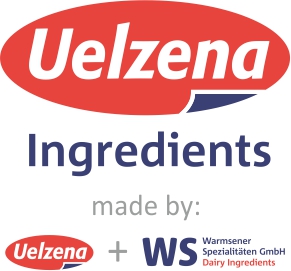sponsored content
Actual food trends are bringing new challenges for dairy ingredients buyers and manufacturers
20 Oct 2020Industrially produced sweetened condensed milk is one of the most important milk-based ingredients for the food and confectionery industry, alongside milk powder and anhydrous milk fat. The major nutritional trends of recent years, such as vegetarian and vegan products, products with an organic label, clean label or food for certain faith groups, also place new demands on the ingredients that are needed.
WS Warmsener Spezialitäten GmbH, as a specialist for sweetened condensed milk, is reacting to the current market trends with new product varieties and packaging options.

Sweetened condensed milk (SCM) is mainly used in the production of high-quality caramel fillings, chocolate bars, pralines, toffees, dessert sauces, ice cream and many other confectionery products. There it not only provides the typical caramel taste, but also influences the desired consistency and mouthfeel of the finished product.
The quality of ingredients has a great impact on the finished products
The quality and the recipe of the sweetened condensed milk used as ingredient naturally have a great influence on the properties of the finished product. The fat content, the dry matter content and the sugar quota are the main criteria for differentiating the common standard recipes.
However, it is not only the fat content and dry matter that determine the properties of the ingredient sweetened condensed milk, but also the technology and process control of the manufacturing dairy company and the quality of the raw material milk which is processed. For example, they influence the crystallization process in the condensed milk. For this reason, formally identical recipes produced from different manufacturers can have very different further processing properties. The selection of the right supplier for one's own product and production process is therefore all the more important for manufacturers of finished goods in the food and confectionery industry.
Current food trends require new product solutions
But it is not only these fundamental differences in quality that are the focus of attention today in the production and processing of sweetened condensed milk. The basic trends of the last years like vegetarian and vegan products, products with organic label, clean label or food for certain faith groups, which e.g. correspond to the rules for Halal or Kosher, are increasingly in demand by today's very informed consumers. Therefore, the request for suitable ingredients is also growing in parallel with the food and confectionery manufacturers. These ingredients have to meet completely new requirements.
"On the one hand, we are noticing a strong increase in demand for certified varieties such as organic and/or Fairtrade as well as Halal and Kosher. And completely new products are being added, such as sweetened condensed milk with the addition of vegetable fat, purely vegetable alternatives without milk or even replacing the sugar with certain sugar substitutes," says Johannes Rother, Managing Director of WS Warmsener Spezialitäten GmbH, describing the rapidly changing requirements of his customers. WS Warmsener Spezialitäten GmbH belongs to the Uelzena Group and is one of the largest manufacturers for SCM in Europe. The company reacted by developing new varieties and has certified its products for various standards to meet these new requirements.
The dairy in Warmsen is currently a pioneer in the market for organic certified sweetened condensed milk, as well as for Fairtrade-licensed condensed milk. When using vegetable fats in the new recipes, the procurement of sustainably produced raw materials is a particularly important criterion; here the company uses RSPO-certified palm fat, for example. As a central organization, RSPO (Roundtable on Sustainable Palm Oil) promotes sustainable cultivation methods for palm oil in the producer countries and has defined several principles and criteria that must be met for sustainable palm oil production.
View this product at Fi Europe CONNECT 2020

